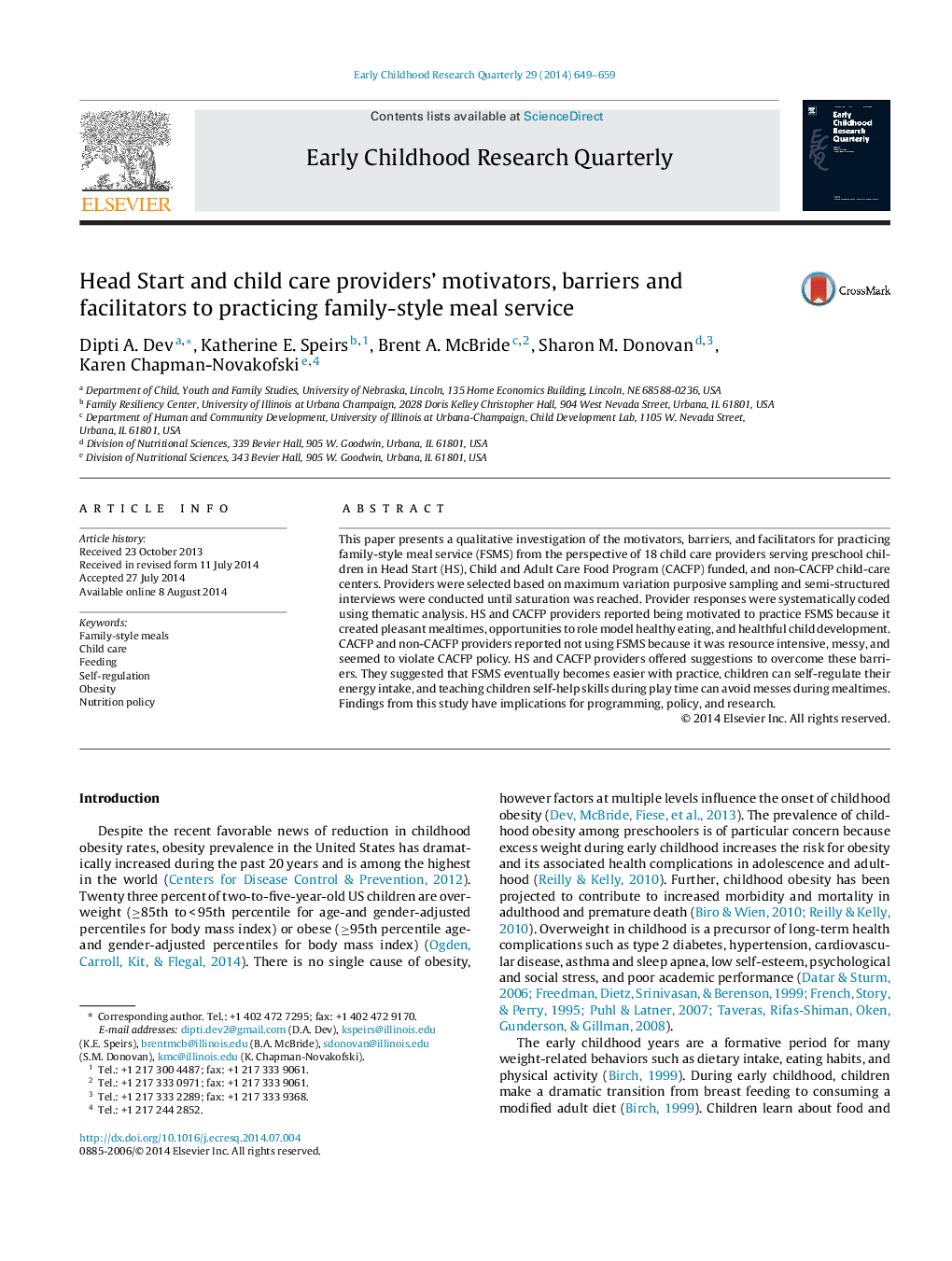| کد مقاله | کد نشریه | سال انتشار | مقاله انگلیسی | نسخه تمام متن |
|---|---|---|---|---|
| 353812 | 618946 | 2014 | 11 صفحه PDF | دانلود رایگان |
• Qualitative study of childcare providers’ perspectives for family-style meal service.
• Providers sampled across Head Start, Child and Adult Care Food Program, non-CACFP.
• Motivators – pleasant mealtimes, child development, role modeling, policies.
• Barriers – messy, unhygienic, costly, developmentally inappropriate, policy conflict.
• Facilitators – practice self-serving, preschoolers can self-regulate, monitoring.
This paper presents a qualitative investigation of the motivators, barriers, and facilitators for practicing family-style meal service (FSMS) from the perspective of 18 child care providers serving preschool children in Head Start (HS), Child and Adult Care Food Program (CACFP) funded, and non-CACFP child-care centers. Providers were selected based on maximum variation purposive sampling and semi-structured interviews were conducted until saturation was reached. Provider responses were systematically coded using thematic analysis. HS and CACFP providers reported being motivated to practice FSMS because it created pleasant mealtimes, opportunities to role model healthy eating, and healthful child development. CACFP and non-CACFP providers reported not using FSMS because it was resource intensive, messy, and seemed to violate CACFP policy. HS and CACFP providers offered suggestions to overcome these barriers. They suggested that FSMS eventually becomes easier with practice, children can self-regulate their energy intake, and teaching children self-help skills during play time can avoid messes during mealtimes. Findings from this study have implications for programming, policy, and research.
Journal: Early Childhood Research Quarterly - Volume 29, Issue 4, 4th Quarter 2014, Pages 649–659
